
Conference on communication distortions and democratic dialogue gathers international guests in Budapest
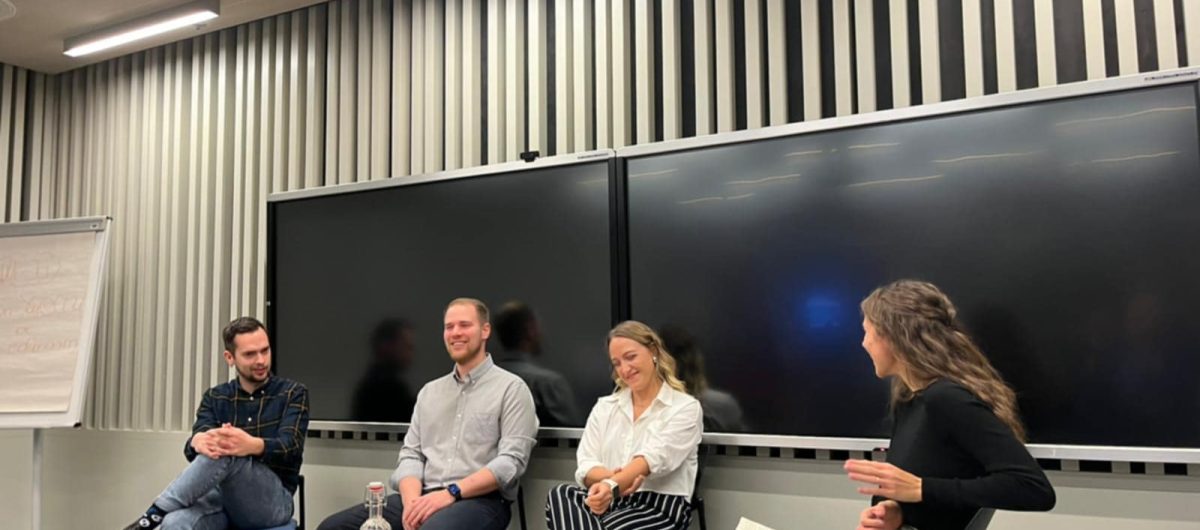
A few days ago our partner Hungarian Europe Society held an intriguing international conference on Communication Distortions and the Possibility of Democratic Dialogue in the 21st Century. It was organized under the auspices of our project and in cooperation with the SCIENCE+ regional network. The event took place on November 12th 2024 at the Central European University in Budapest, Hungary.
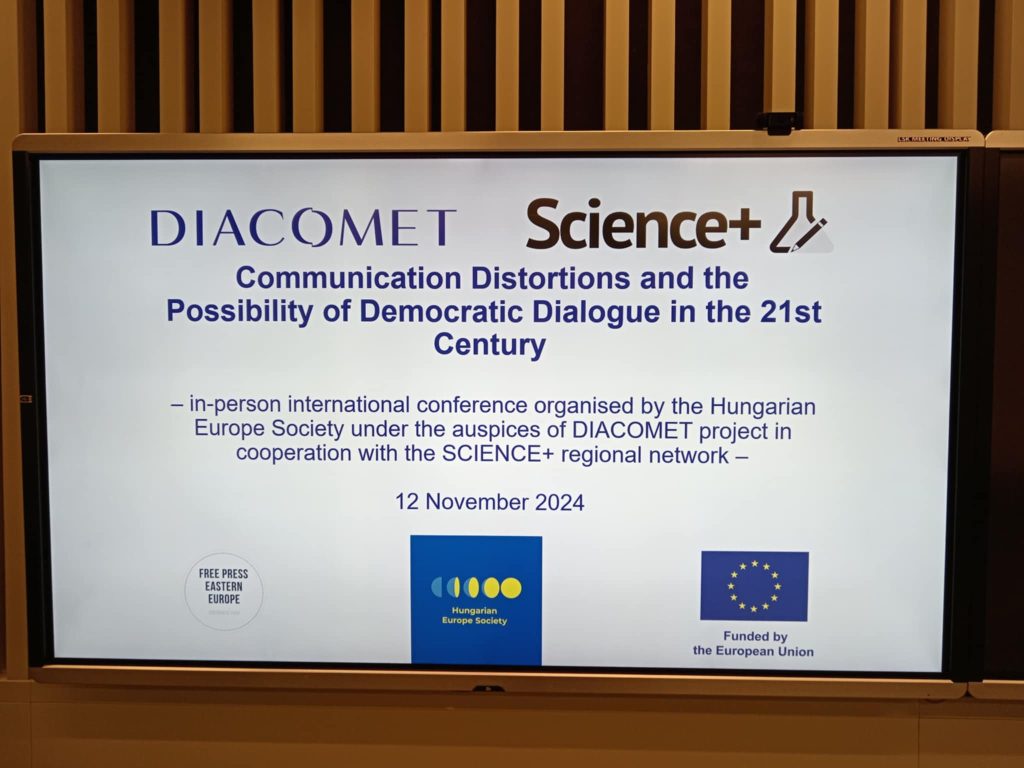
After initial introductions by István Hegedűs (Chairman, Hungarian Europe Society) and Maryia Sadouskaya-Komlach (Chairwoman of the Board, Free Press for Eastern Europe) the conference day was divided in two sessions.
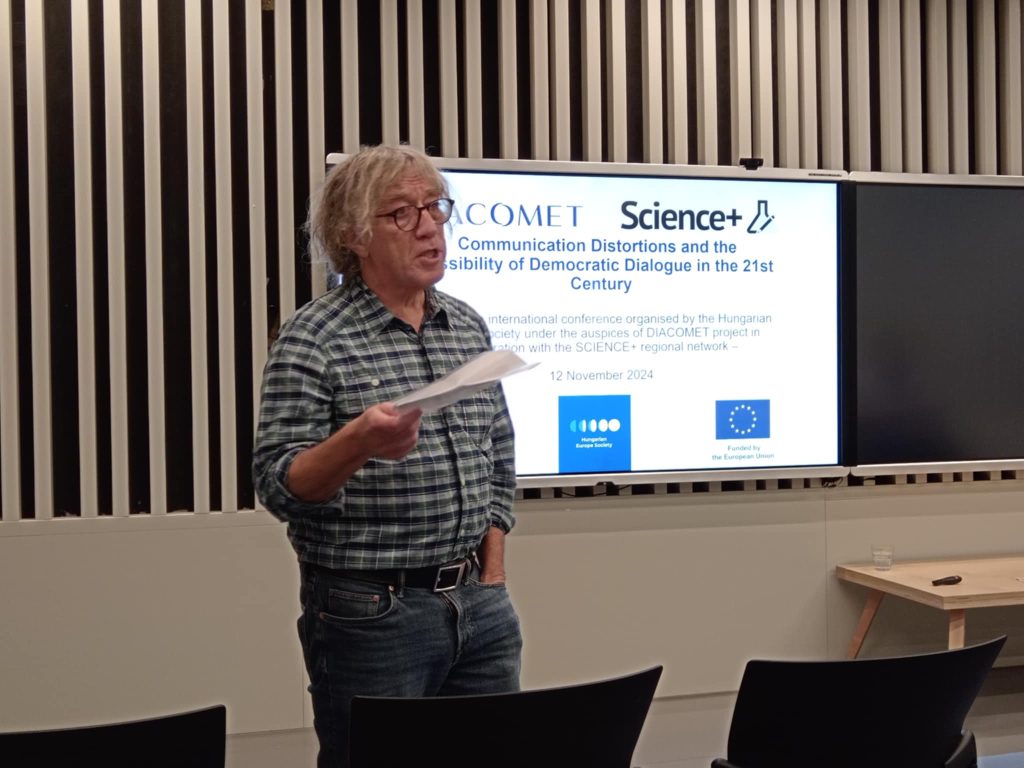
Session I. focused on Disinformation, fake news and information manipulation during the year of elections. The audience listened to keynote addresses by Jaroslav Valůch (Czech researcher, SCIENCE+ Network; Member of the Crisis Information Unit, Czech Ministry of Interior): When disinformation really hurts – Lessons from the Czech Republic and Blanka Zöldi (Editor-in-Chief, Lakmusz): Disinformation in political advertisements – How do big tech companies profit from lies?
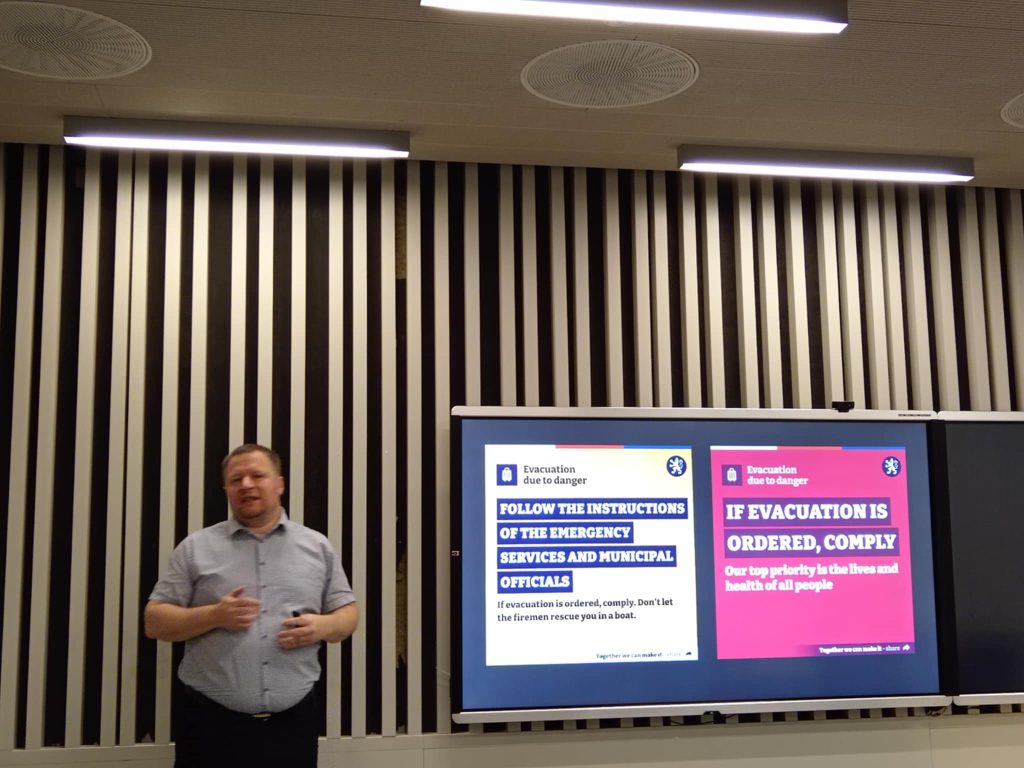
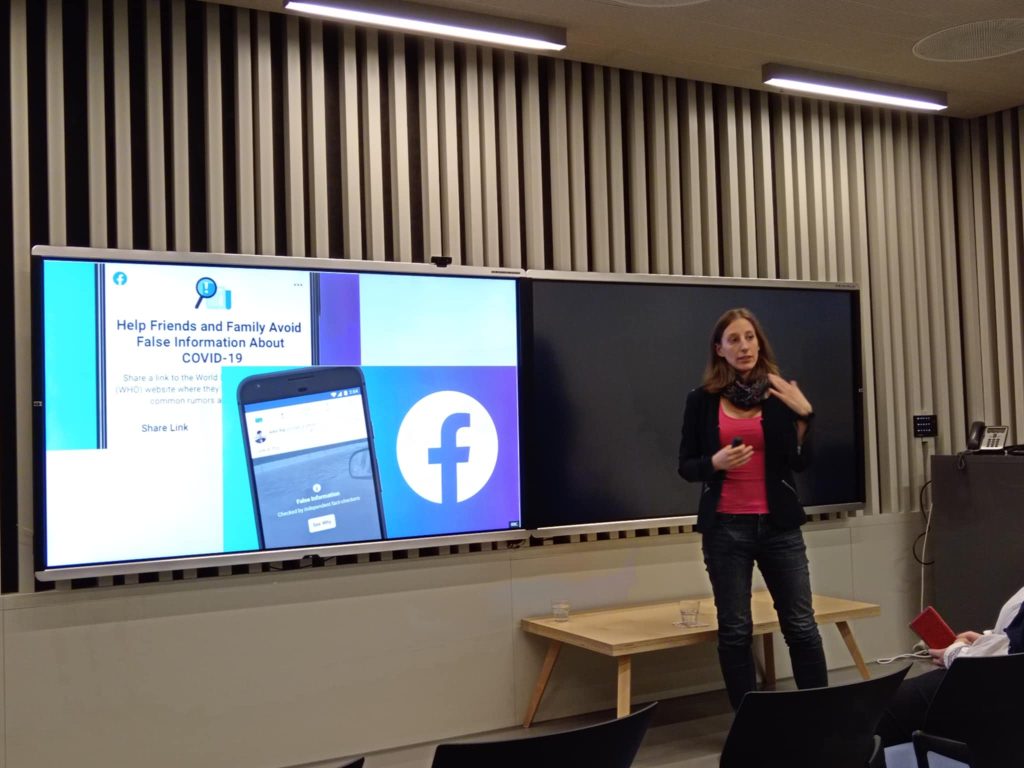
The presentations were followed by a round-table discussion on Disinformation, fake news and populist political communication, which gathered participants Márk Finta (Journalist, Napunk – Denník N) and Bulcsú Hunyadi (Head of Programmes, Head of the Radicalisation and Extremism Programme, Political Capital) and moderator Veronika Munk (Director of Innovation and New Markets, Denník N; Lecturer, ELTE University).
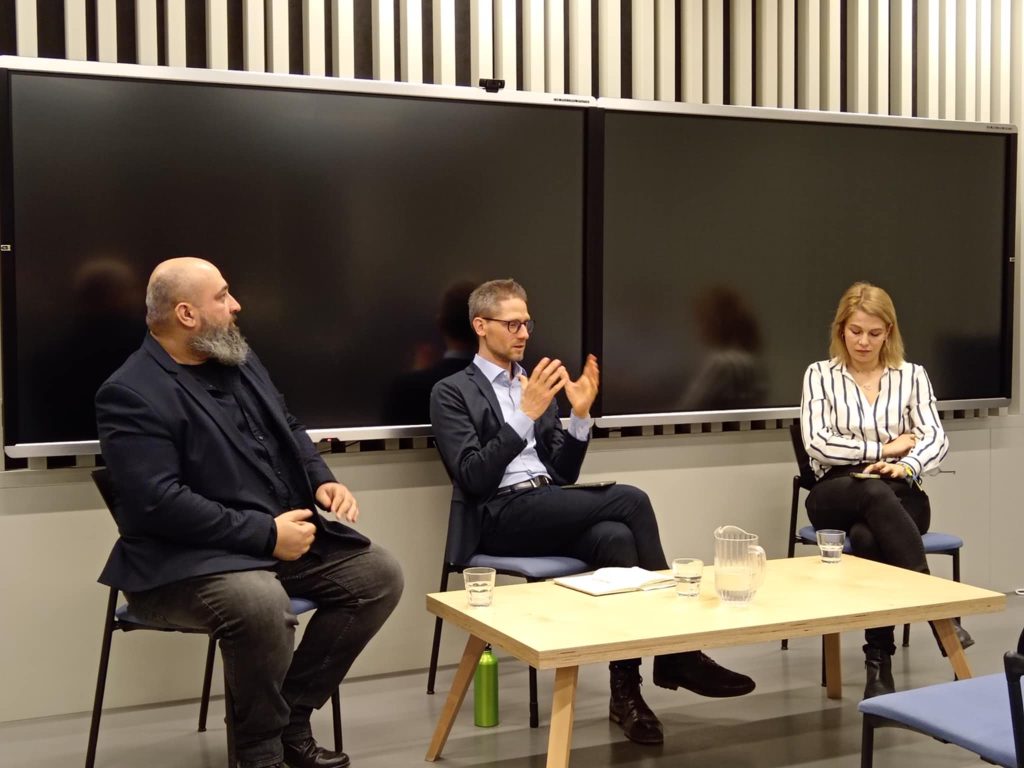
Session II. focused on Ethical communication and journalism in the Digital Age: Lessons learned from DIACOMET and SCIENCE+ projects. During this session three DIACOMET consortium members discussed their work. Firstly, Christina Krakovsky (Junior Scientist, Institute for Comparative Media and Communication Studies, Austrian Academy of Sciences / University of Klagenfurt; Researcher, DIACOMET project) gave a presentation titled From abortion to media financing – How divisive issues are discussed in Austrian public discourse. Secondly, Eszter Hadnagy (Social Psychologist; Ph.D. Student, ELTE University; Researcher, DIACOMET project) discussed Ethical dilemmas in communication – Insights from Hungarian focus groups. Lastly, Erik Uszkiewicz (Lawyer; Vice-Chairperson, Hungarian Europe Society; Researcher, DIACOMET project) presented “Law in books and law in action” – Ethical and diversity requirements in the Hungarian media regulation and in practice.
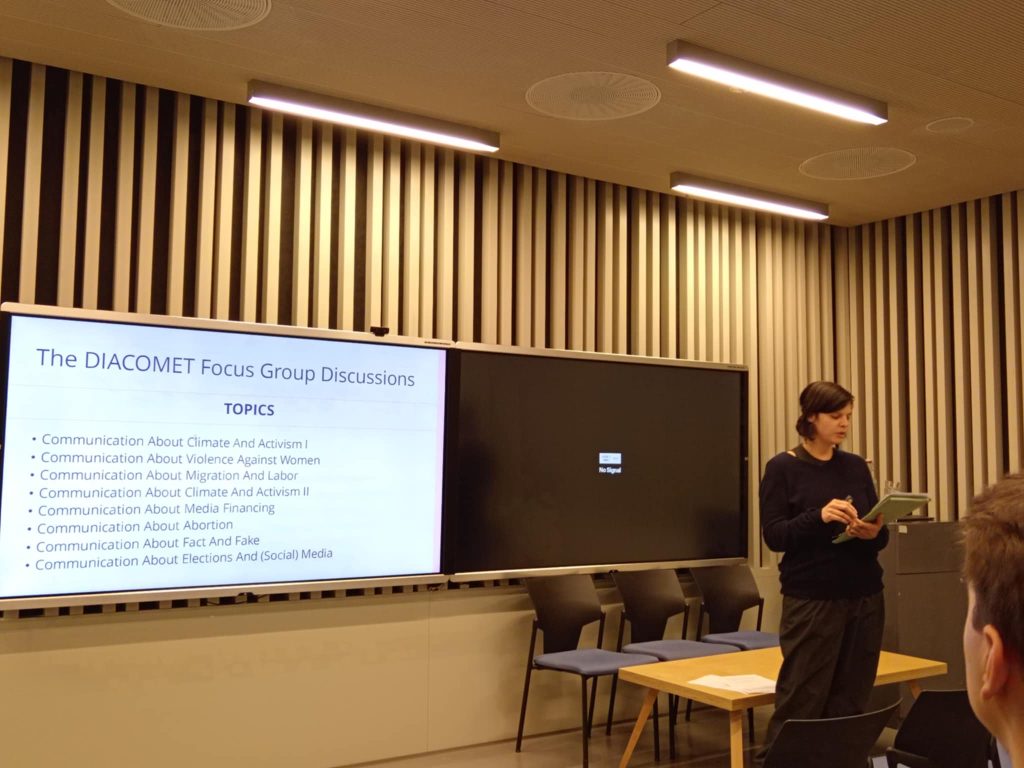
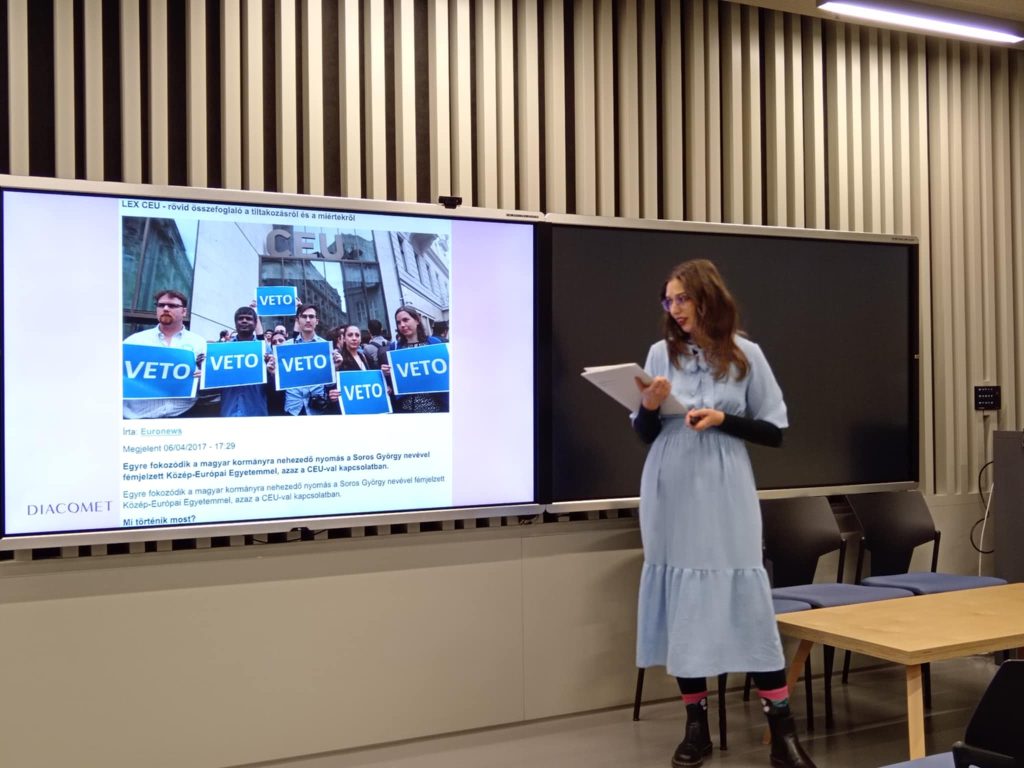
The second session was followed by a round-table discussion on Scientific disinformation in the journalistic practice, which gathered participants Péter Lugosi (Journalist, 24.hu), Nikoletta Nagy (Journalist, telex.hu) and Máté Világi (Journalist, telex.hu; members of the SCIENCE+ Network) and moderator Fanni Barczikai (Journalist, Lakmusz). After, Maryia Sadouskaya-Komlach (Chairwoman of the Board, Free Press for Eastern Europe) gave her farewell remarks.
We are sincerely thankful to everyone for their participation and great contributions.
The conference was supported by the European Union’s Horizon Europe research and innovation program and the SCIENCE+ Network.
